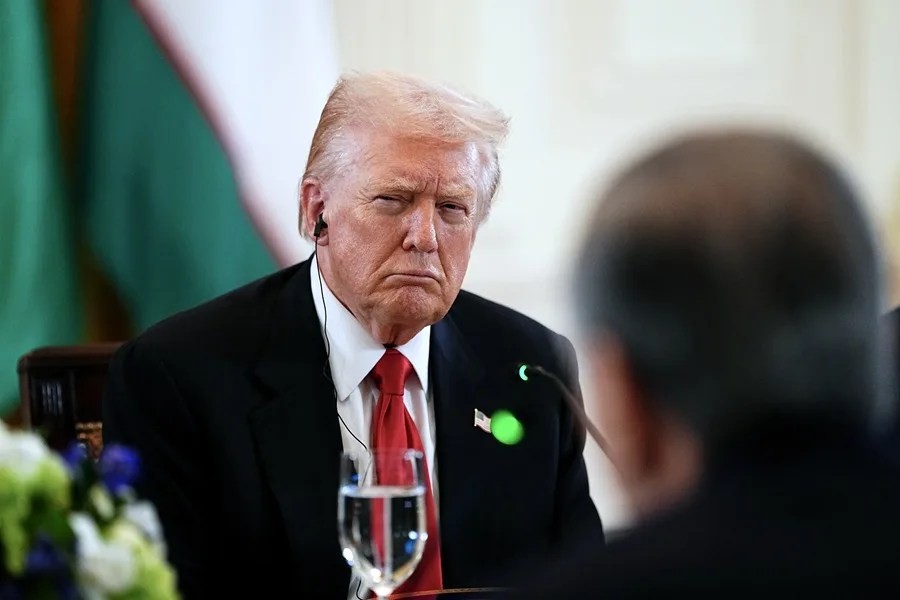Trump Minimizes Hamas Role Amid Gaza Crisis—Is U.S. Leadership Falling Short?
President Trump claims Hamas is a minor player in Gaza’s conflict while lauding peace efforts, but American leadership risks overlooking key threats to national security and regional stability.

In a recent White House dinner with Central Asian leaders, former President Donald Trump downplayed the role of Hamas in the ongoing Gaza conflict, insisting that “Hamas is a very, very small part of the conflict.” This surprising minimization raises critical questions about Washington’s understanding and handling of Middle Eastern threats—a region whose instability has direct consequences for America’s national security and border control challenges.
Trump asserted that the “situation in Gaza is working very well,” highlighting adherence to ceasefire agreements brokered under his administration’s Abraham Accords. Yet beneath this optimistic rhetoric lies a troubling complacency: Hamas remains a designated terrorist organization fundamentally opposed to Israel’s sovereignty and peace. How can any American leader dismiss its influence when its actions continually provoke violence destabilizing an already volatile region?
Is the U.S. Ignoring Clear Threats Under the Guise of Diplomacy?
While Trump praised international cooperation efforts for stabilizing Gaza—including plans for a UN-coordinated force—the reality on the ground tells a different story. The fragile ceasefire masks persistent hostility that endangers both Israelis and Palestinians, with ripple effects reaching American soil through refugee flows and heightened terror threats.
The former president’s assertion that non-compliance by Hamas would bring “a really big problem” seems more like rhetoric than firm policy backed by decisive action. The question is: will Washington continue to treat this as merely another diplomatic inconvenience or confront it head-on as part of protecting America’s interests abroad?
What Does This Mean for America’s Sovereignty and Security?
Peace accords like the Abraham Accords represent significant strides toward regional normalization, championed under Trump’s leadership as an embodiment of America First principles—strengthening alliances without compromising Israel’s security or U.S. sovereignty. But downplaying terrorist actors undermines these gains.
As global powers maneuver for influence in Central Asia and the Middle East, American leadership must remain vigilant—not complacent—in confronting threats to freedom and peace. Delegitimizing adversaries like Hamas does not make them disappear; ignoring their impact puts hardworking Americans at risk from fallout abroad.
Will future policymakers learn from this mischaracterization or repeat mistakes that weaken our stance against terrorism? For families relying on secure borders and stable foreign relations, such lapses are intolerable.
The takeaway: It’s time for honest accountability rather than political spin when discussing conflicts affecting U.S. national security. Strong American leadership means calling out threats clearly—even if inconvenient—and ensuring peace deals protect all parties’ freedoms without compromise.
